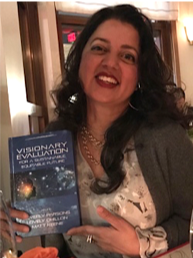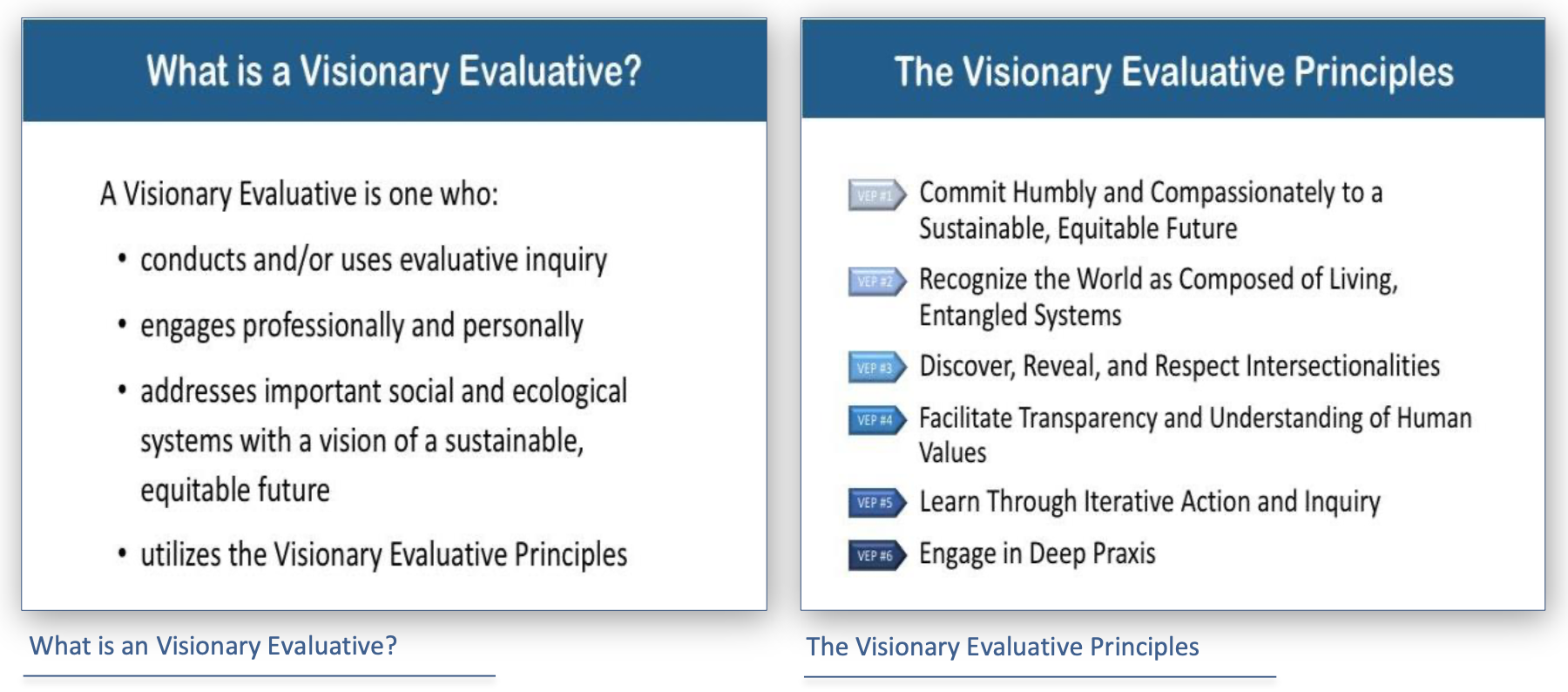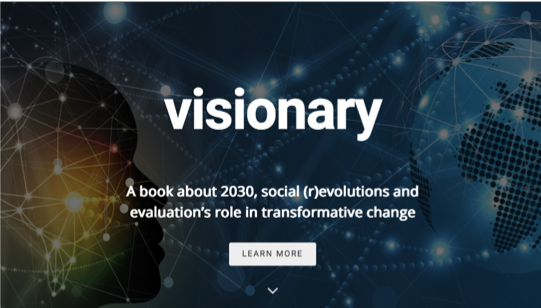
I’m Lovely Dhillon, CEO of Jodevi Consulting based in Atlanta, GA. I have been privileged throughout my career to work with visionaries across the world who share a dedication to using their expertise and life experience to create a better world. Beverly Parsons and Matt Keene, co-editors of Visionary Evaluation for a Sustainable Future, and the authors of our sector-focused chapters are perfect examples. I hope you have enjoyed the Visionary Evaluative blogs this week.
I have worked in sectors incorporating social change efforts – legal, philanthropic, nonprofit, social enterprise, government, and corporate – and all have used forms of evaluative thinking to consider impact. I had the greatest impact when I combined the inspiration of vision with the rigor of evaluation. It is as a Visionary Evaluative that I now am moving into an ever deeper and more integrated level of impact by using the Visionary Evaluative Principles (VEPs) as I move through my world – in my work, community, and in all the organizations and people with whom I interact daily.
Lessons Learned:
In my workplace, I integrate my values, in an honest and nonjudgmental way, with my clients, and in my business choices. I consider the collaborators and sectors with whom I work, the issues to which potential clients are focused, and the values I share in writing.
In my work with clients, I strive to build a relationship of trust during which we talk about values reflected in their strategy, measurement, reflection, and learning. With my clients and in my own work, I consider not only intent and efforts but especially outcomes, core to our book and the VEPs.
In my Community, being a VE has helped me live my values by volunteering, buying from and investing in vendors that share my values for people and planet, and having the courage to take on the discomfort and fear of confronting colleagues, strangers, and even friends who may act in ways that reflect inequity, bias, or hate, or who show a disrespect for nature and our environment.
Us: Beyond all else, it is how I treat others, whether my family, colleagues, neighbors, and strangers, that matters the most. I remind myself that even though I see myself through the eyes of my values, the truth lies in how those values are reflected in the way I live and the experience of others with whom I interact.

Rad Resources :In concluding this week’s Visionary Evaluative series, I encourage you to accessVisionary Evaluation for a Sustainable, Equitable Future (use discount code VEFSA8338) and its website: Learn about why we believe that “there is no greater time in which VEs are needed than now,” and “evaluative inquiry is not the sole domain or responsibility of one group (i.e., evaluators), but rather an active, co-creative process involving those conducting evaluative inquiries and those using the results of those inquiries.”
The American Evaluation Association is celebrating the publication of Visionary Evaluation for a Sustainable, Equitable Future, an outgrowth of the Evaluation 2014 conference theme with the same name. The contributions all this week to aea365 come from editors and authors of the book. Do you have questions, concerns, kudos, or content to extend this aea365 contribution? Please add them in the comments section for this post on the aea365 webpage so that we may enrich our community of practice. Would you like to submit an aea365 Tip? Please send a note of interest to aea365@eval.org. aea365 is sponsored by the American Evaluation Association and provides a Tip-a-Day by and for evaluators.

